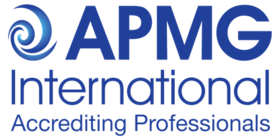» This Practitioner course usually runs consecutively with Better Business Cases Foundation as a five-day Combined course.
With organisations investing significantly each year on capital investments such as buildings, equipment, and facilities, it is essential that the right choices are made and provide value for money. A good business case provides the evidence to support decision-making and assurance to all stakeholders of responsible action. Business cases are not just associated with larger projects, they are equally relevant and just as important to smaller projects or developments. Many projects commence with an optimistic business case which is poorly written, resulting in an organisation spending money that may not provide the return expected or wanted.
Better Business Cases training and certification is designed to help individuals:
Understand and apply the philosophy of the Five Case Model to business cases and other spending proposals
Understand different types of business cases, their purpose, who is responsible for them, and when they are required
Understand the development lifecycle of a business case and the relationships between the five cases
Develop effective business cases and spending proposals that appropriately scope the initiative and secure funding and management support
In this Practitioner course, you'll become a business case professional able to apply the Five Case Model to a real project.
Examination
This course pricing includes a voucher for the Better Business Cases Practitioner Exam which can be taken via remote proctor. A practice exam paper is provided in the course, and reviewed to assist in preparation. The exam is:
2.5 hours
Objective testing with 4 questions worth 20 marks each
Pass mark is 40 out of 80 (i.e. 50%)
Open book (International Guide to Developing the Project Business Case and International Guide to Developing the Programme Business Case only)
It is highly recommended that you spend some time each evening of this course reviewing and consolidating what you’ve learned, to be well prepared for the exam.

